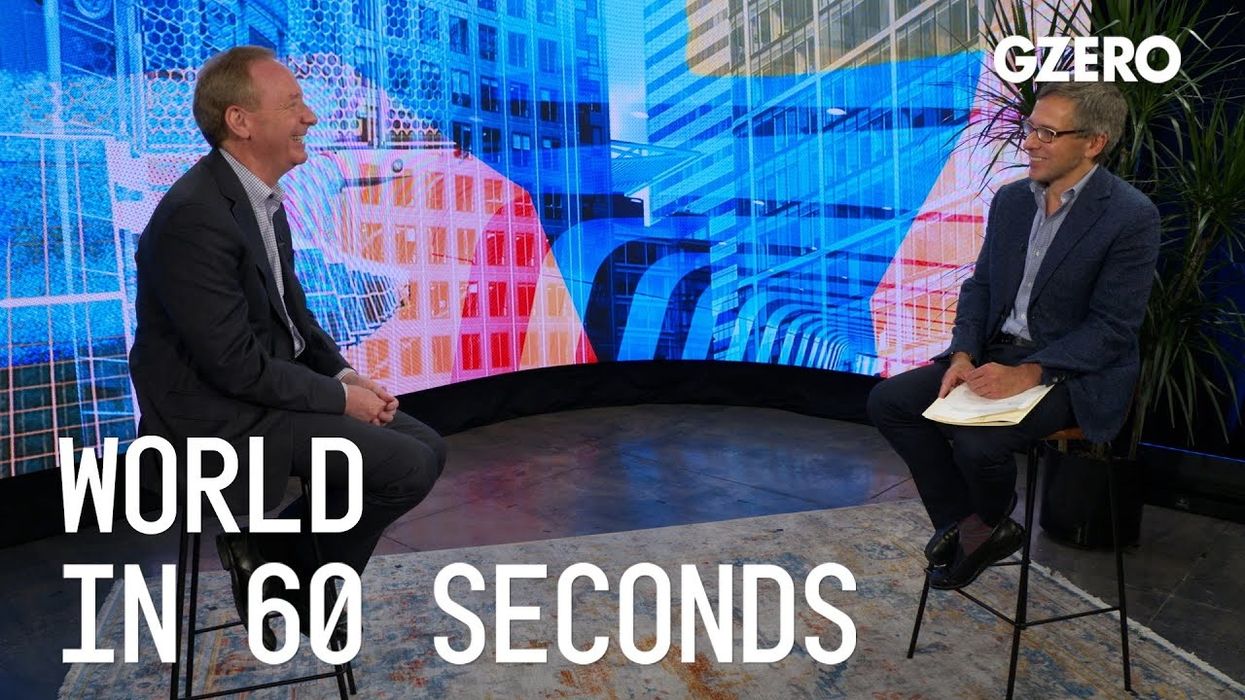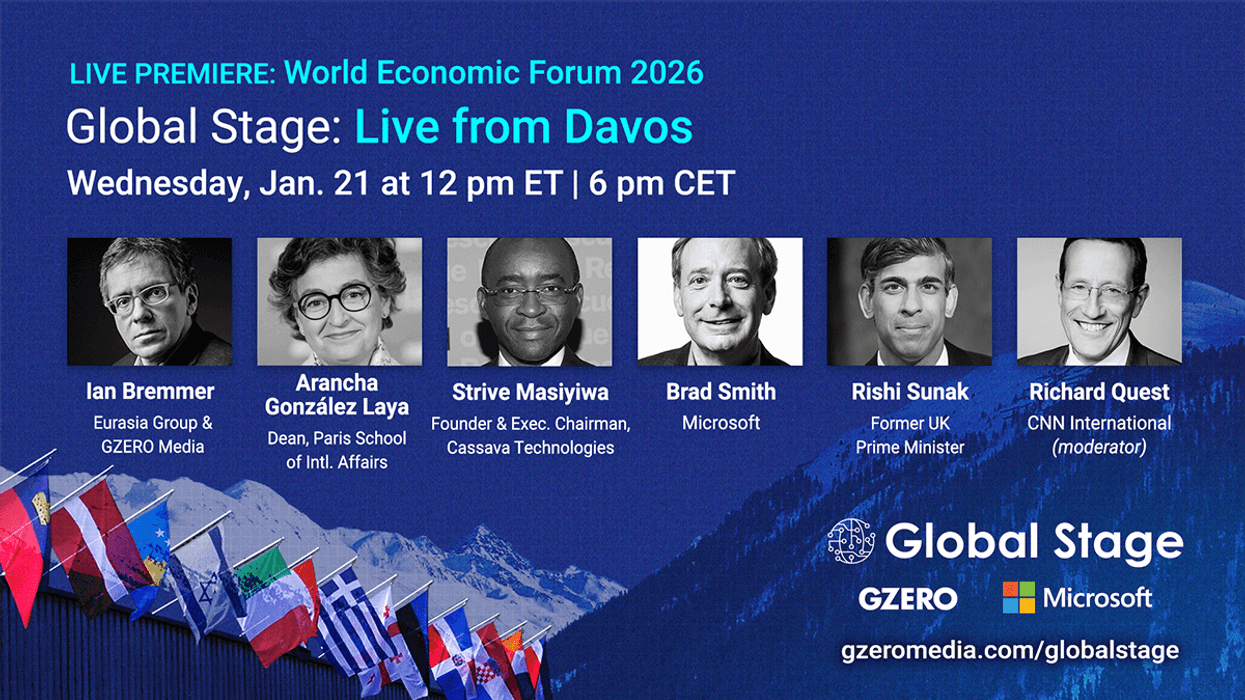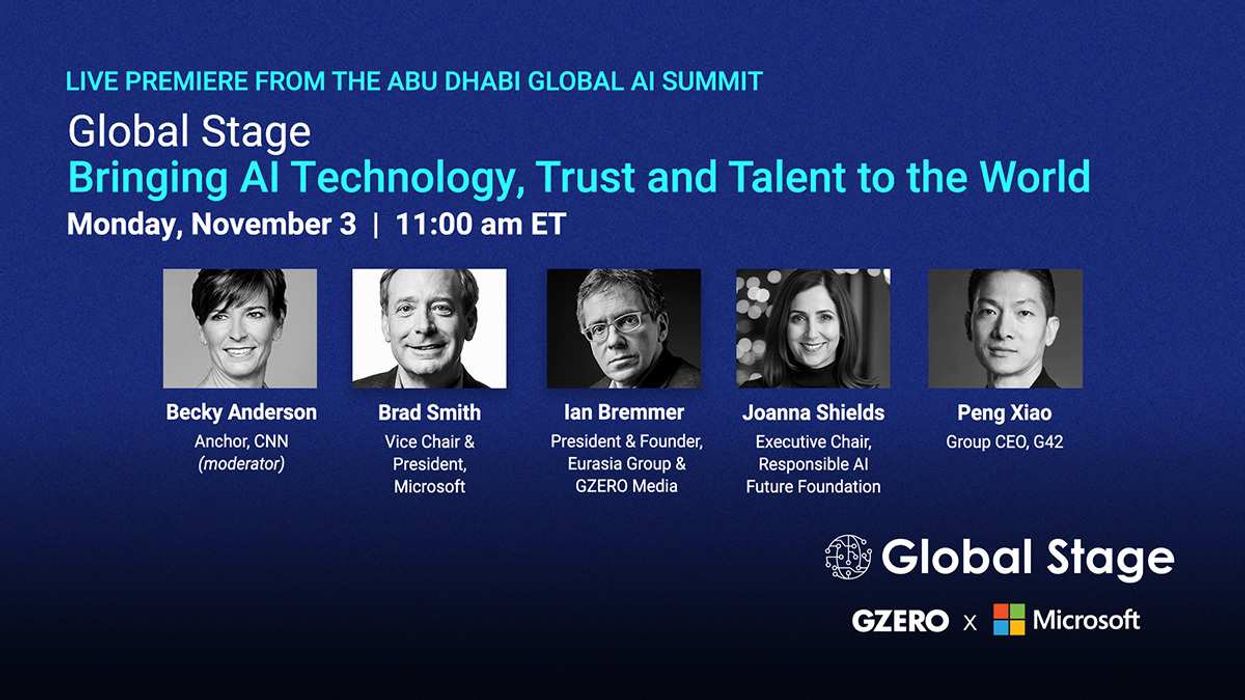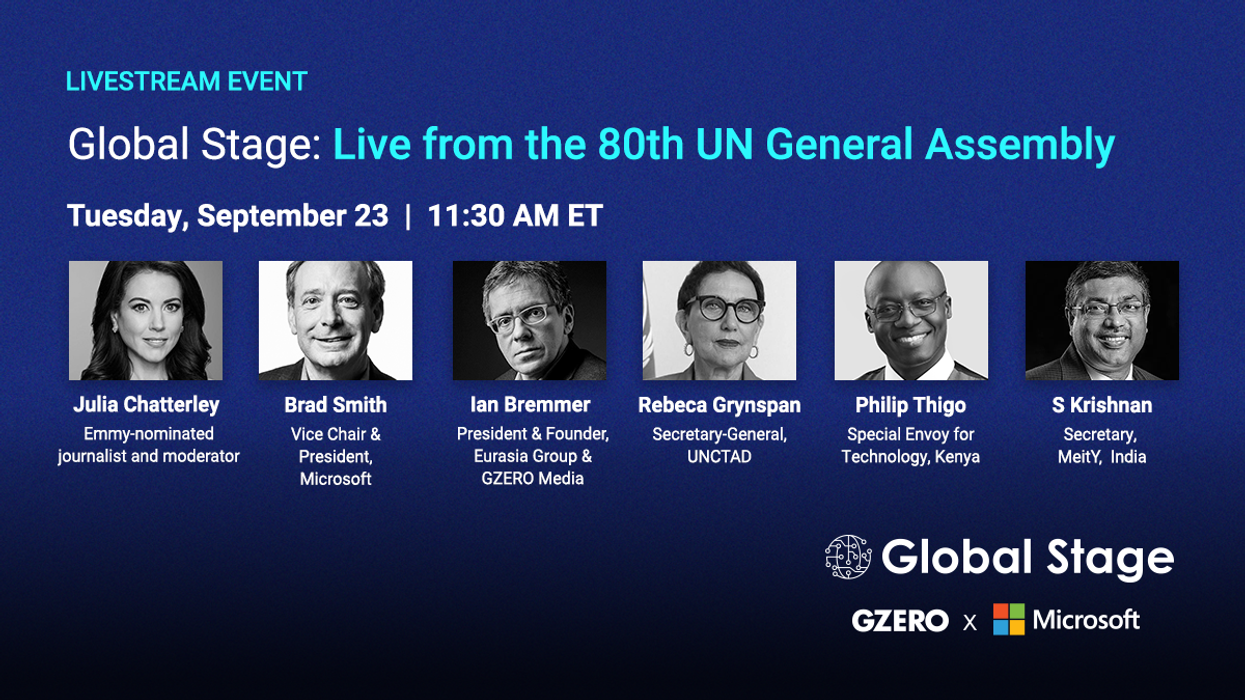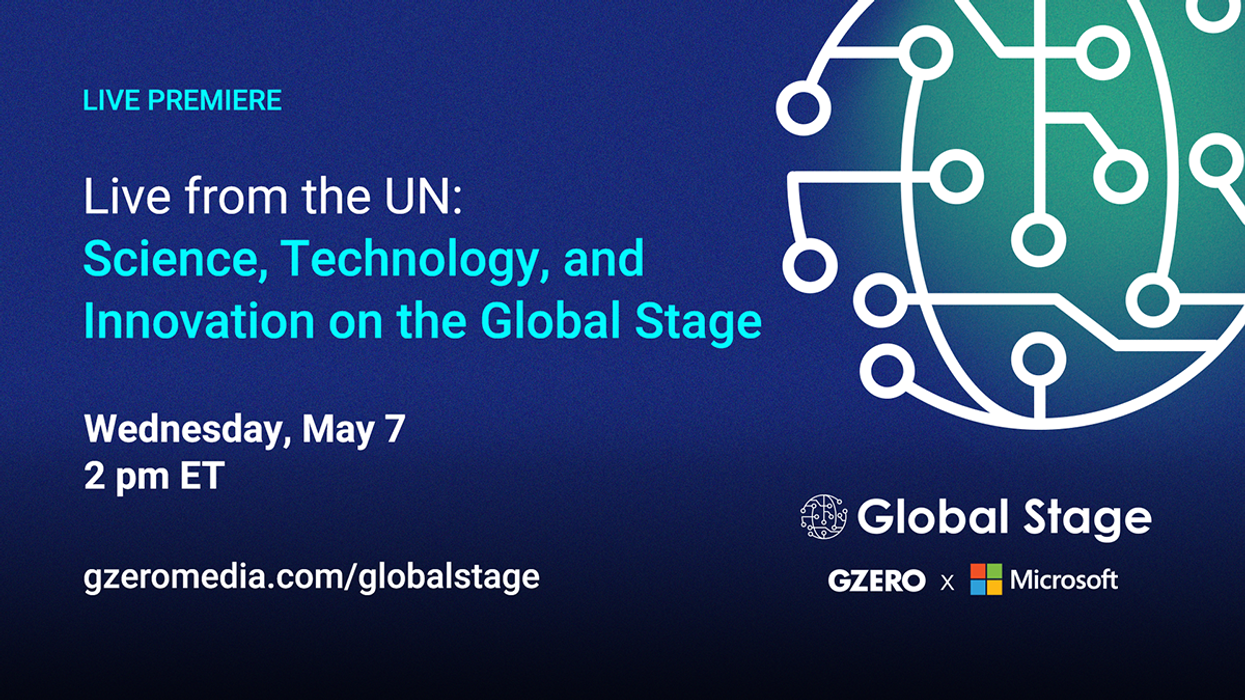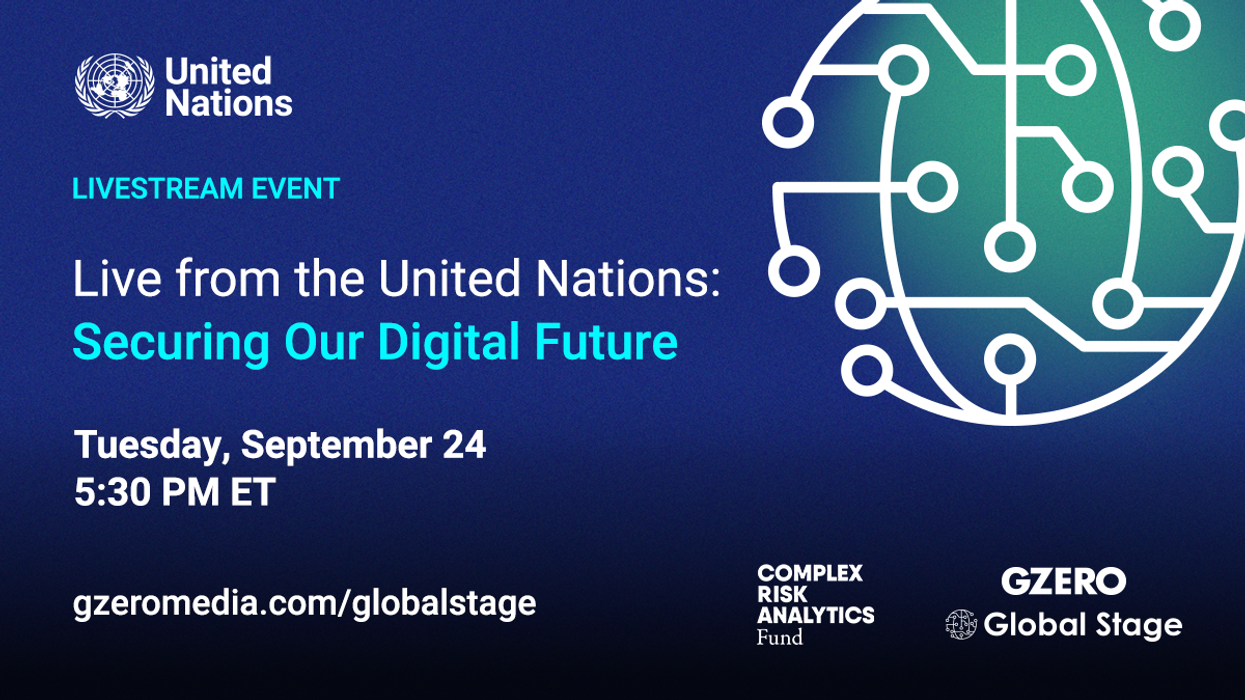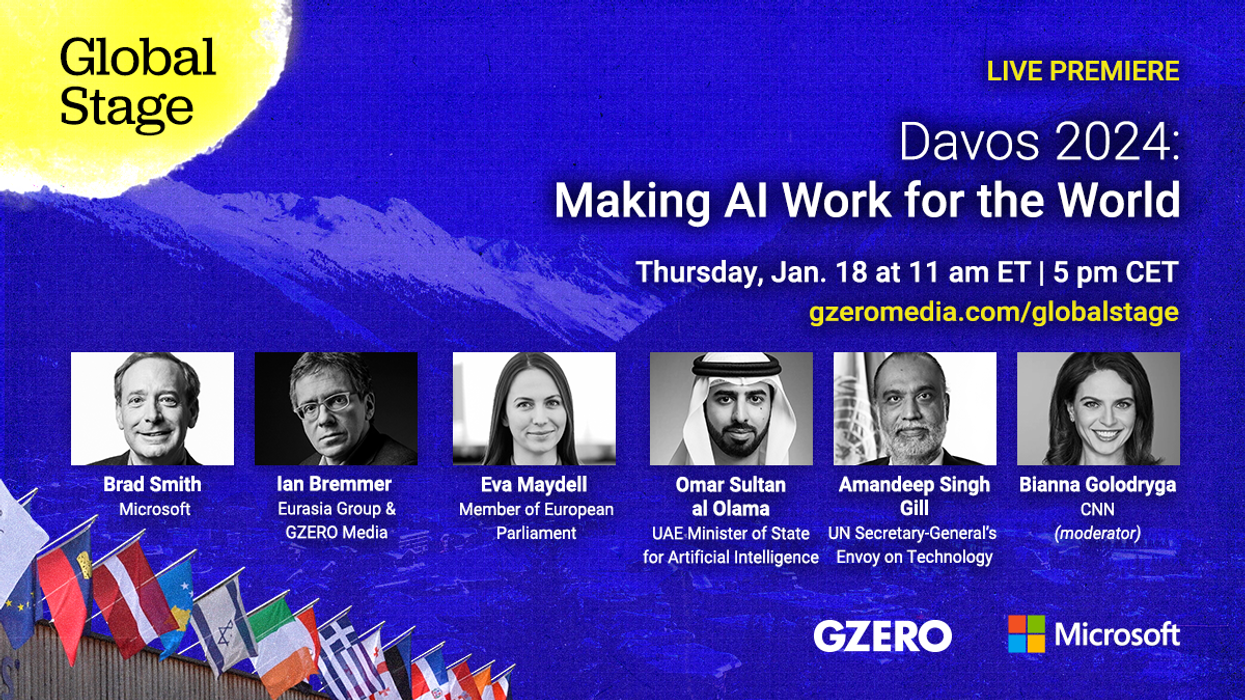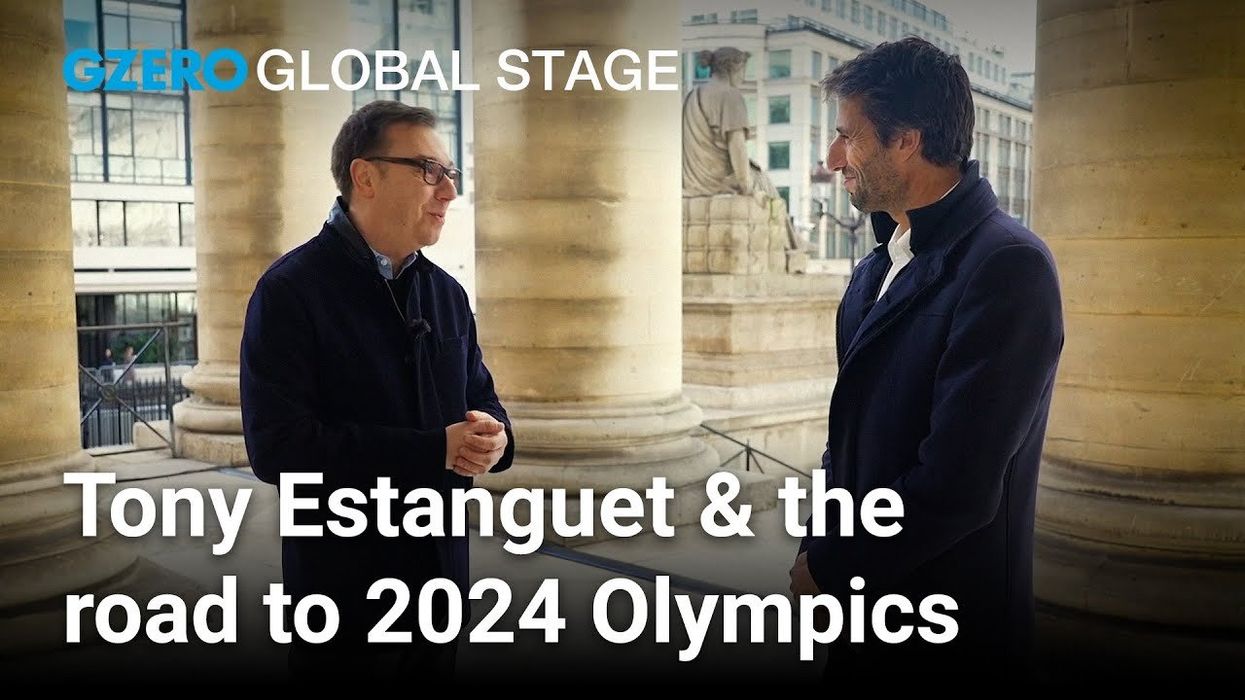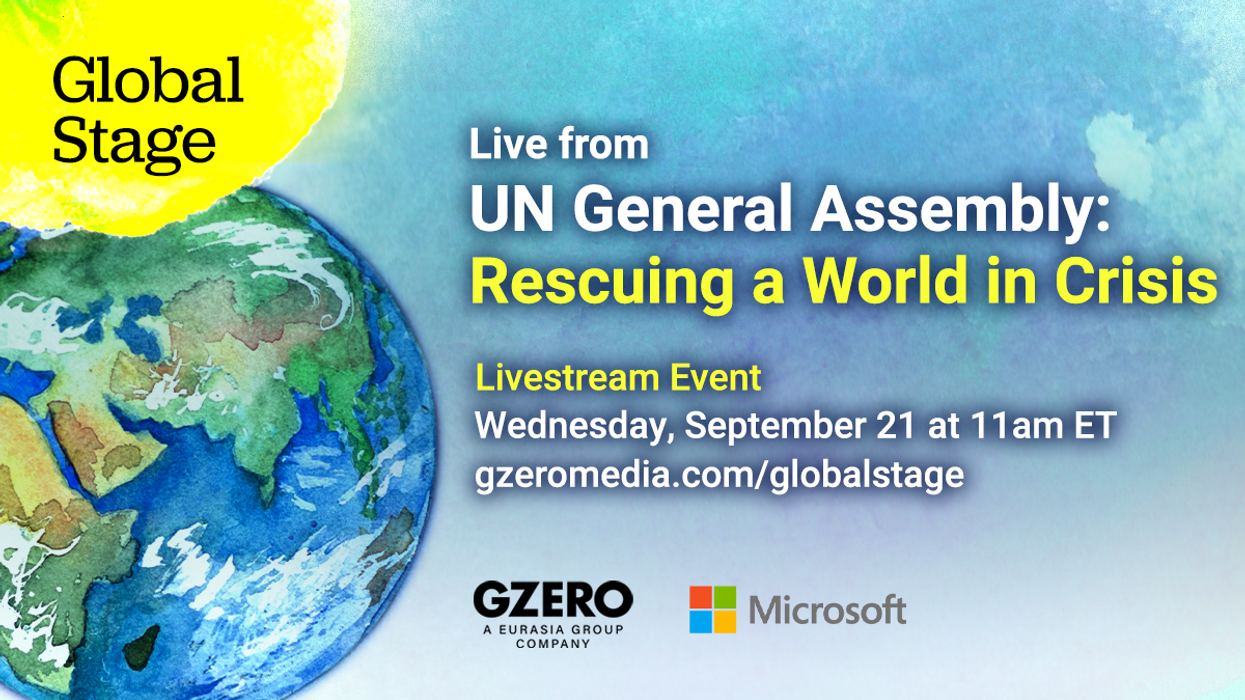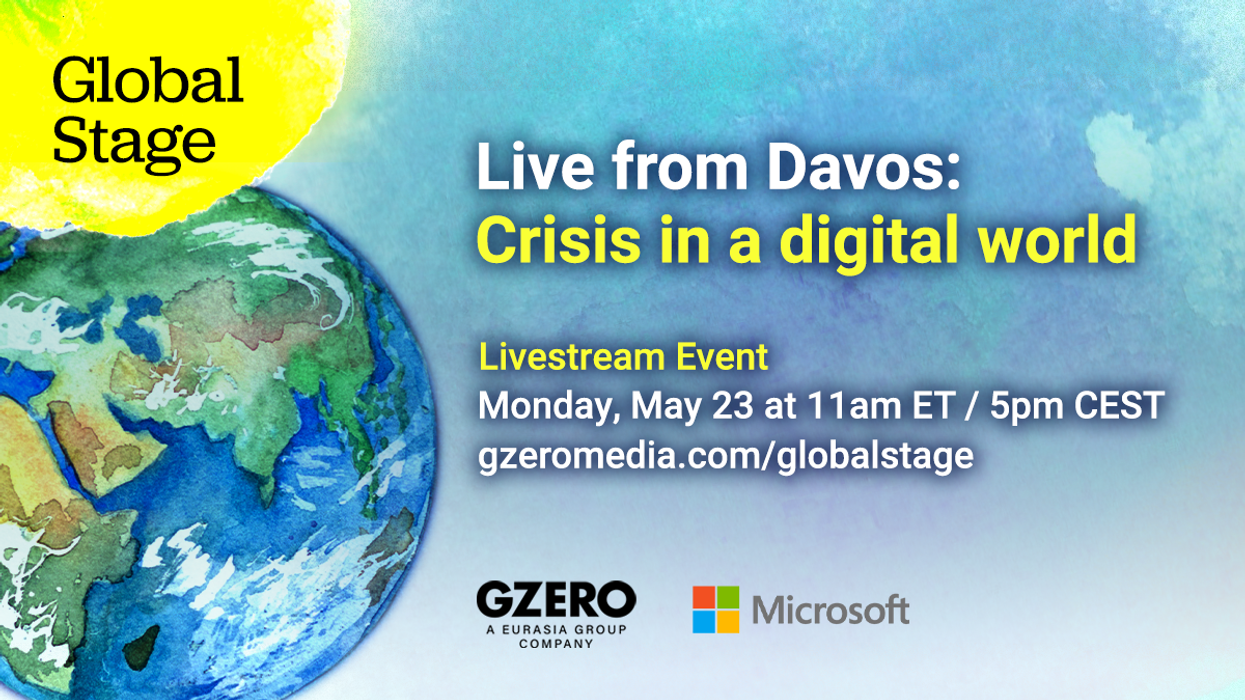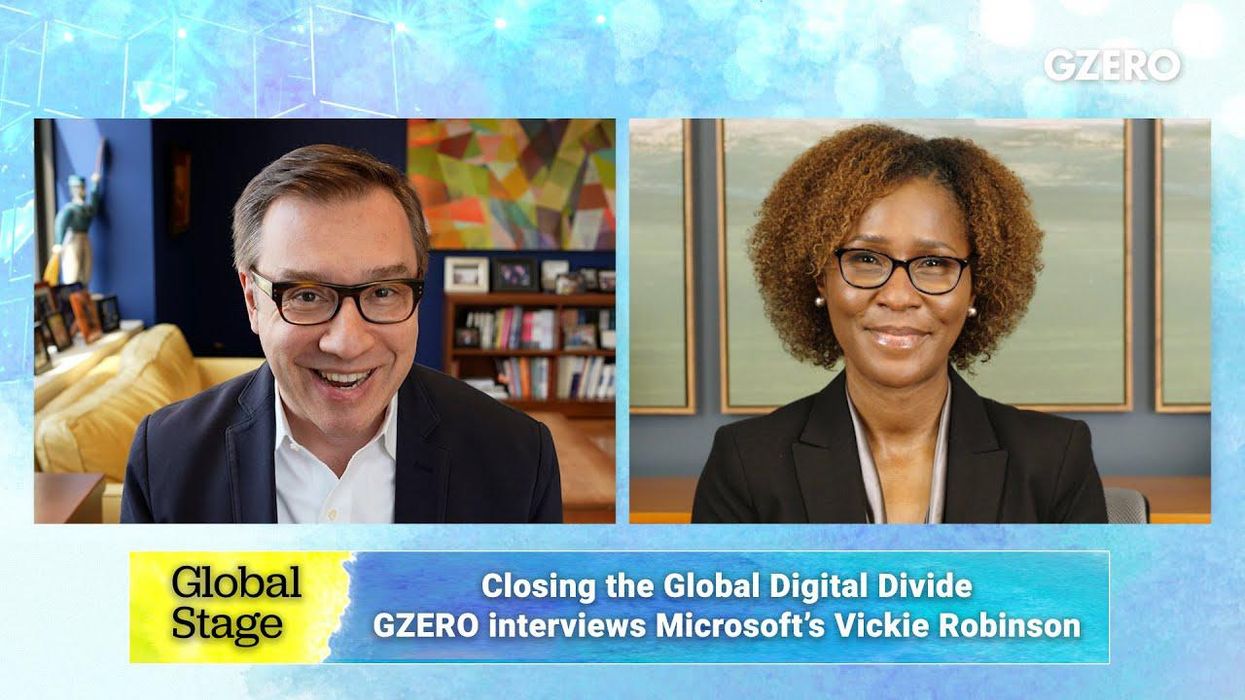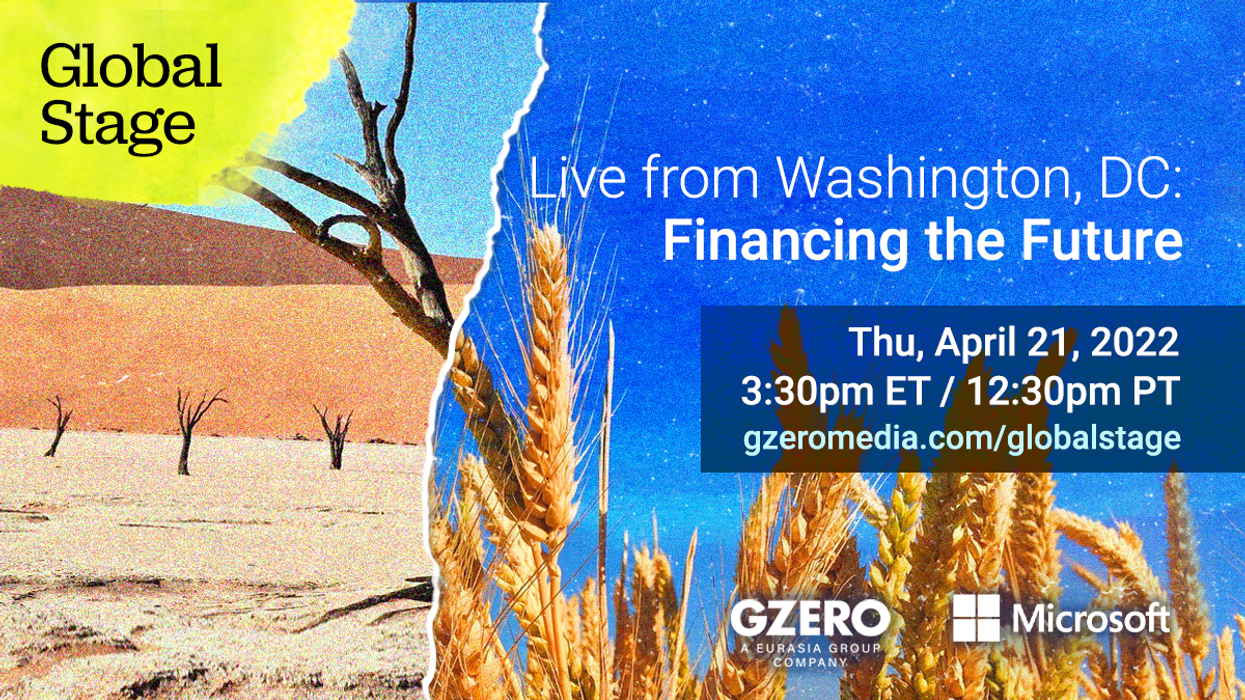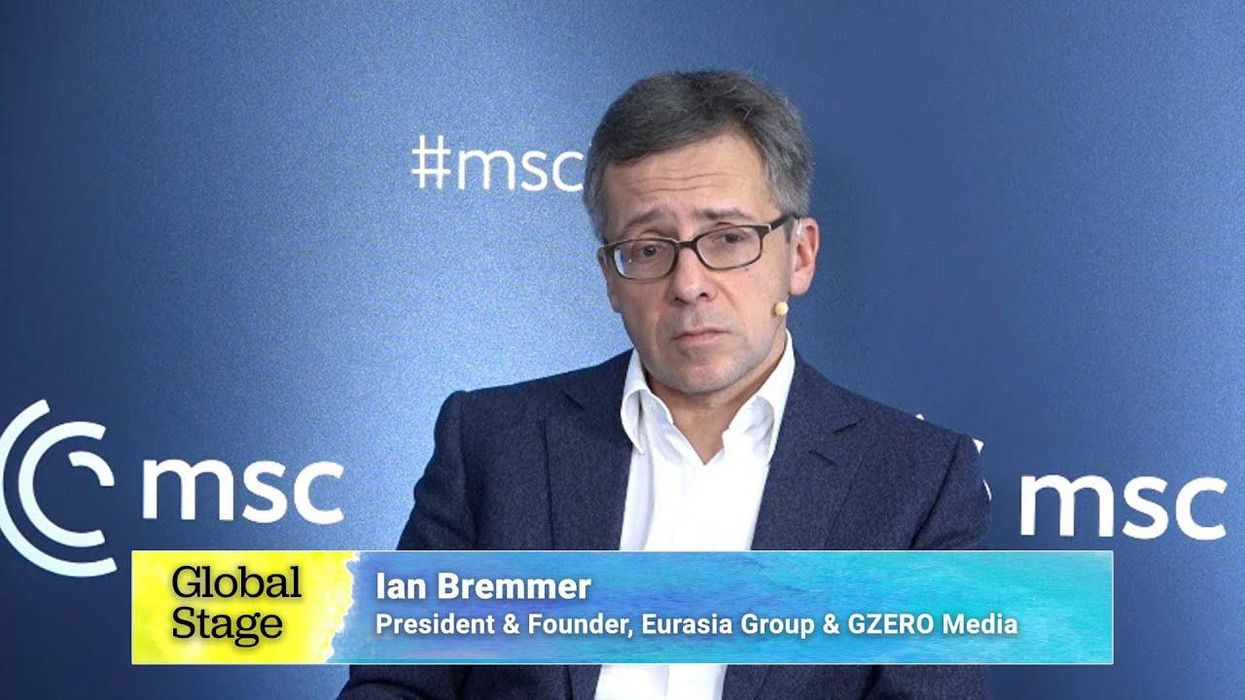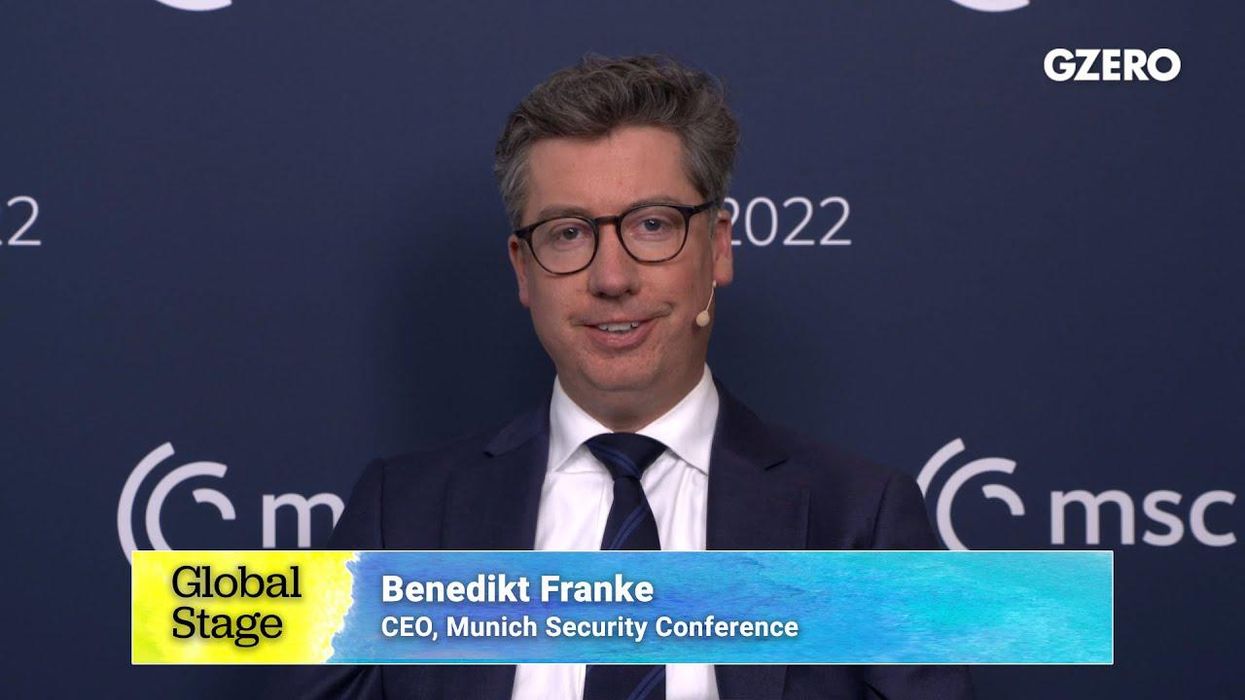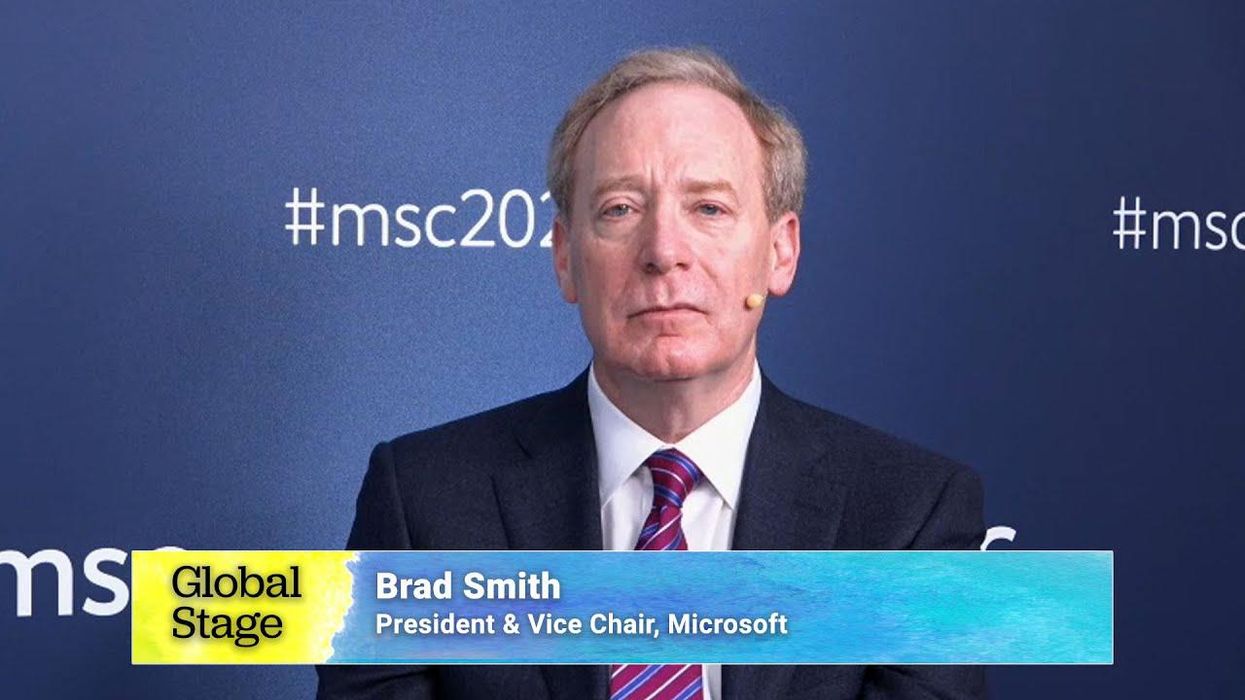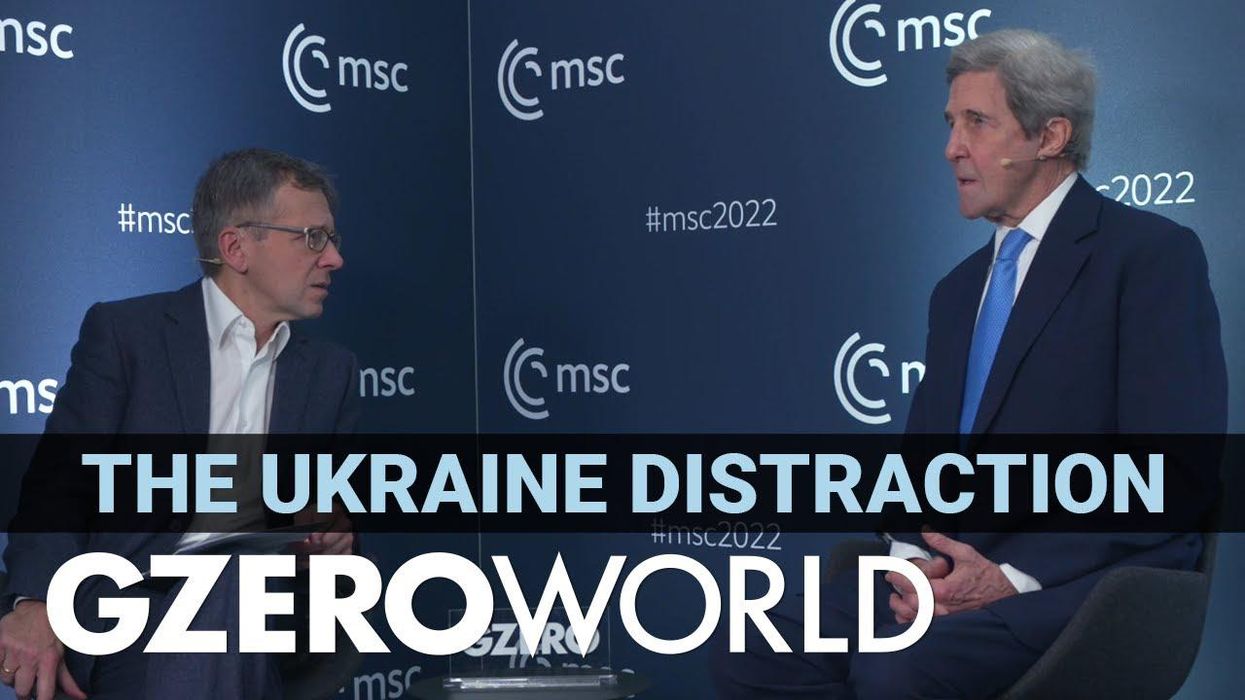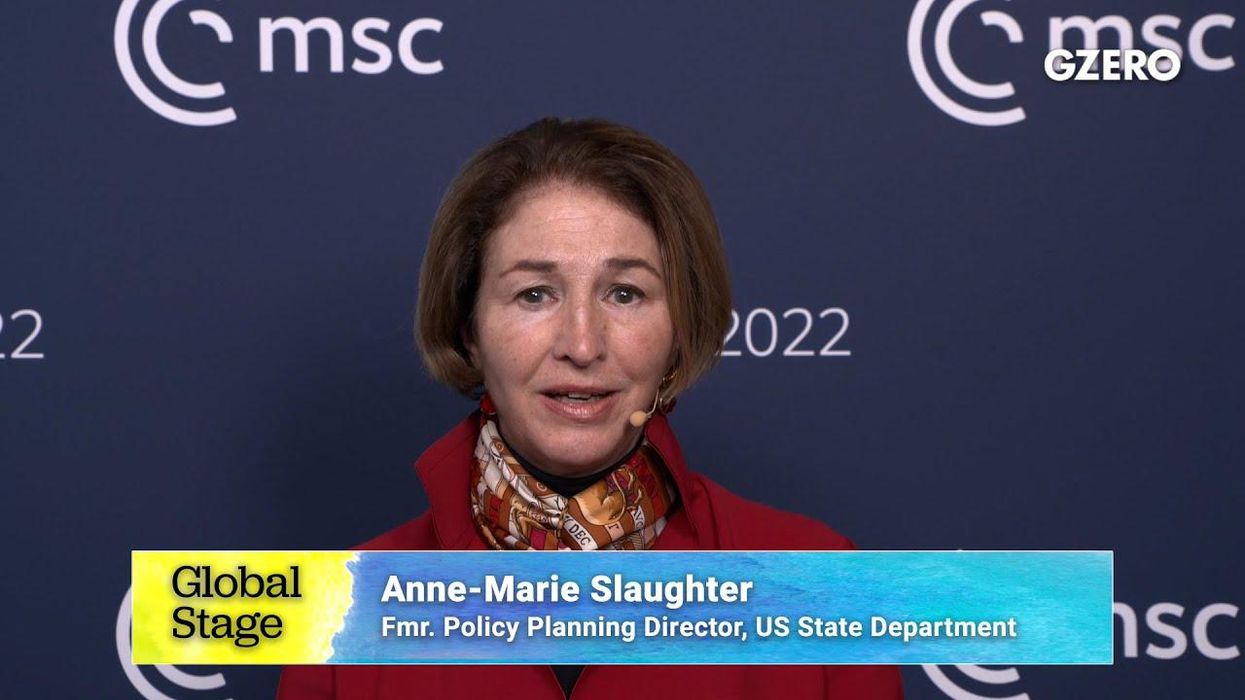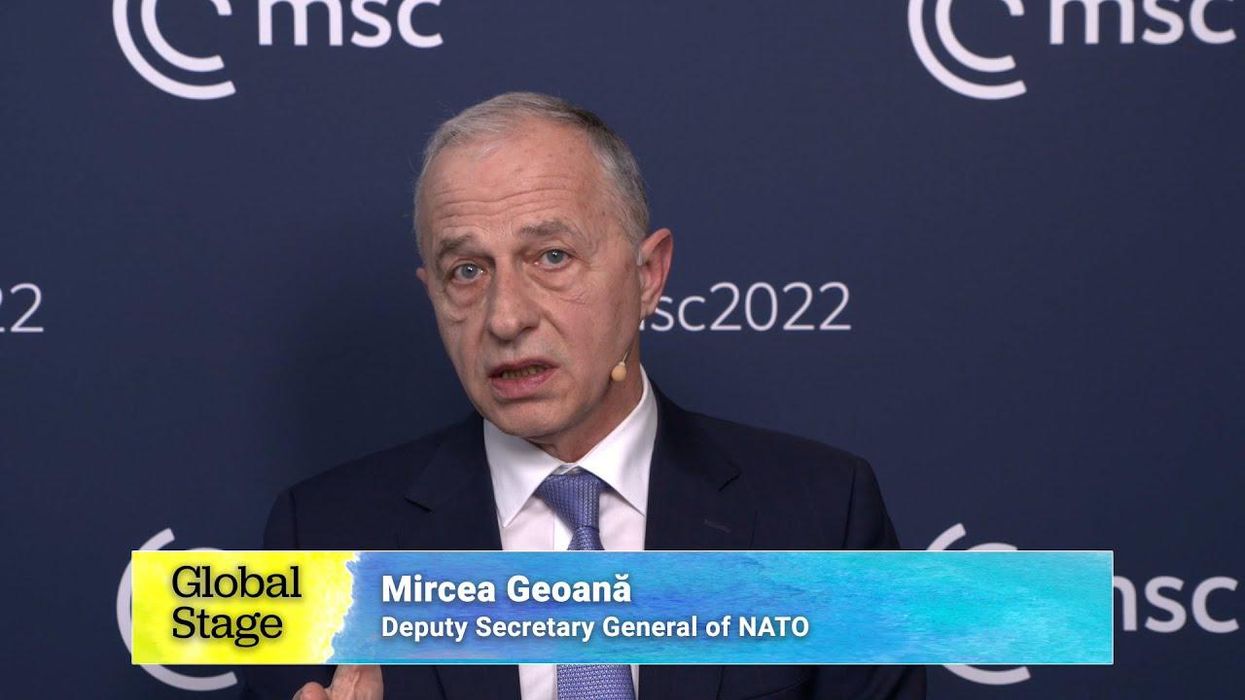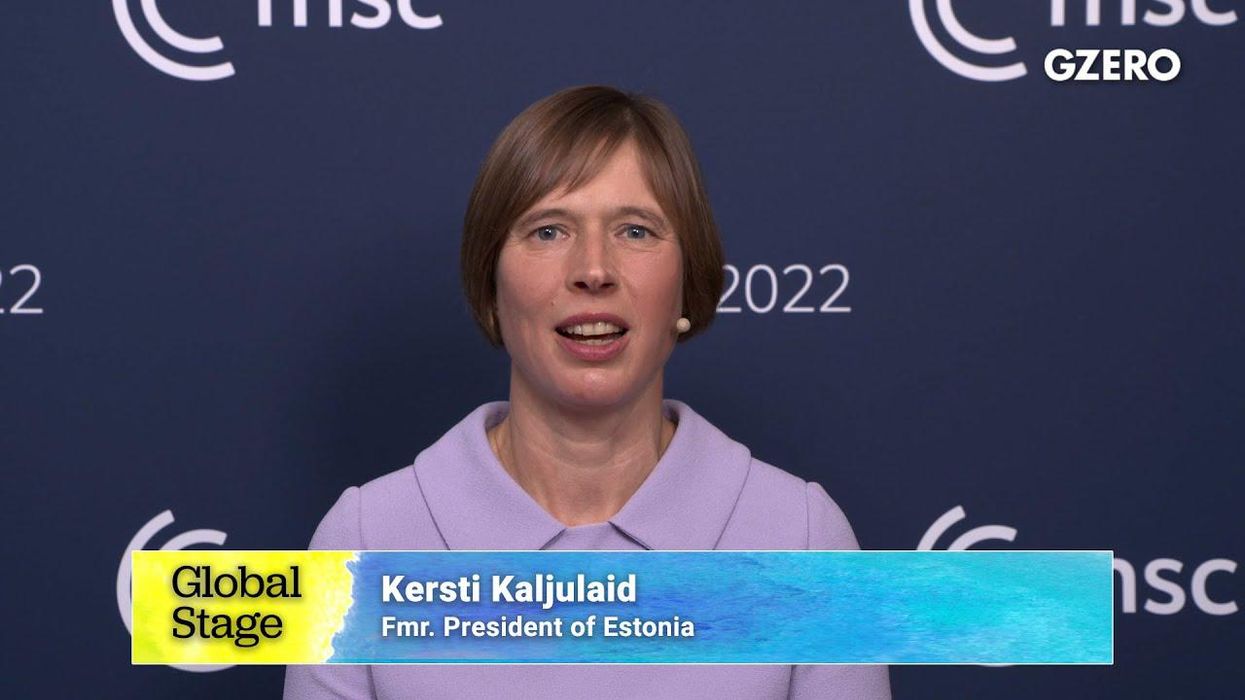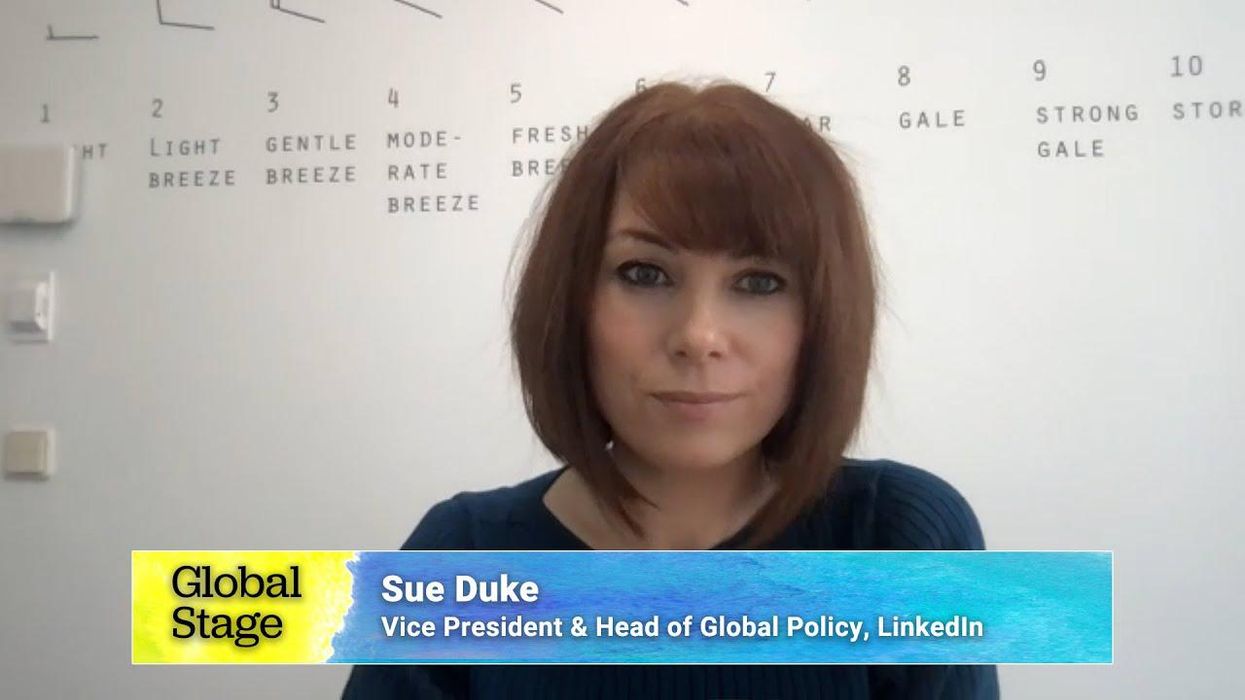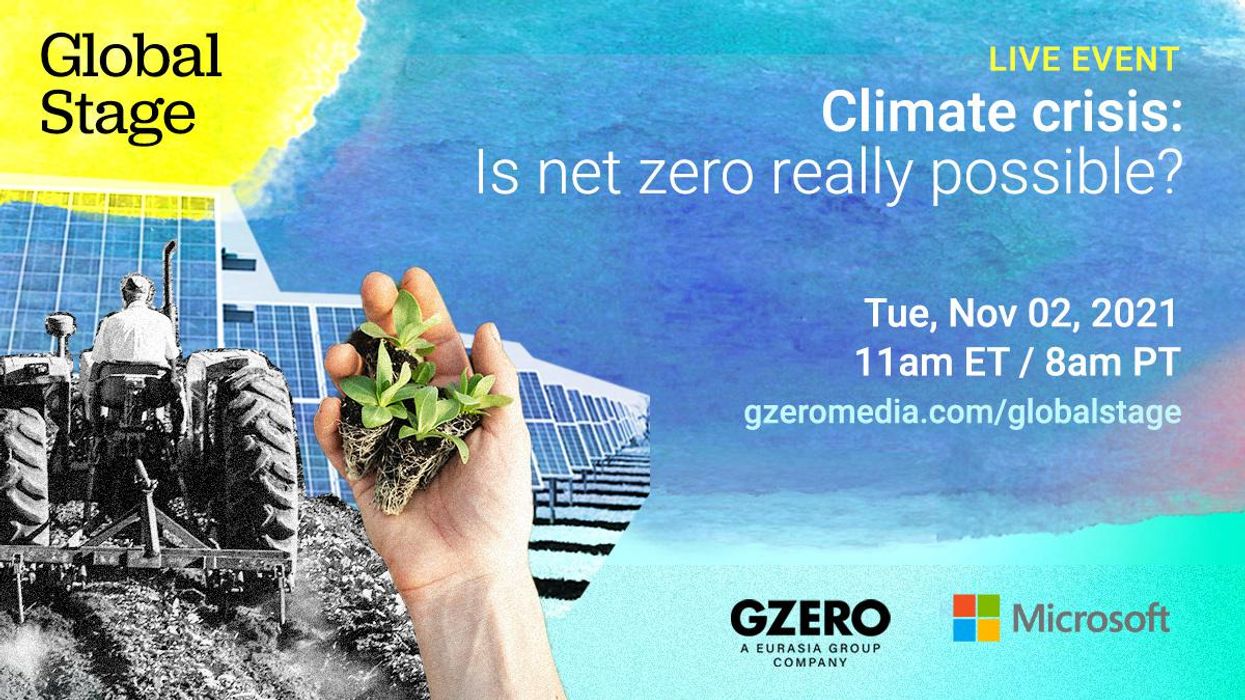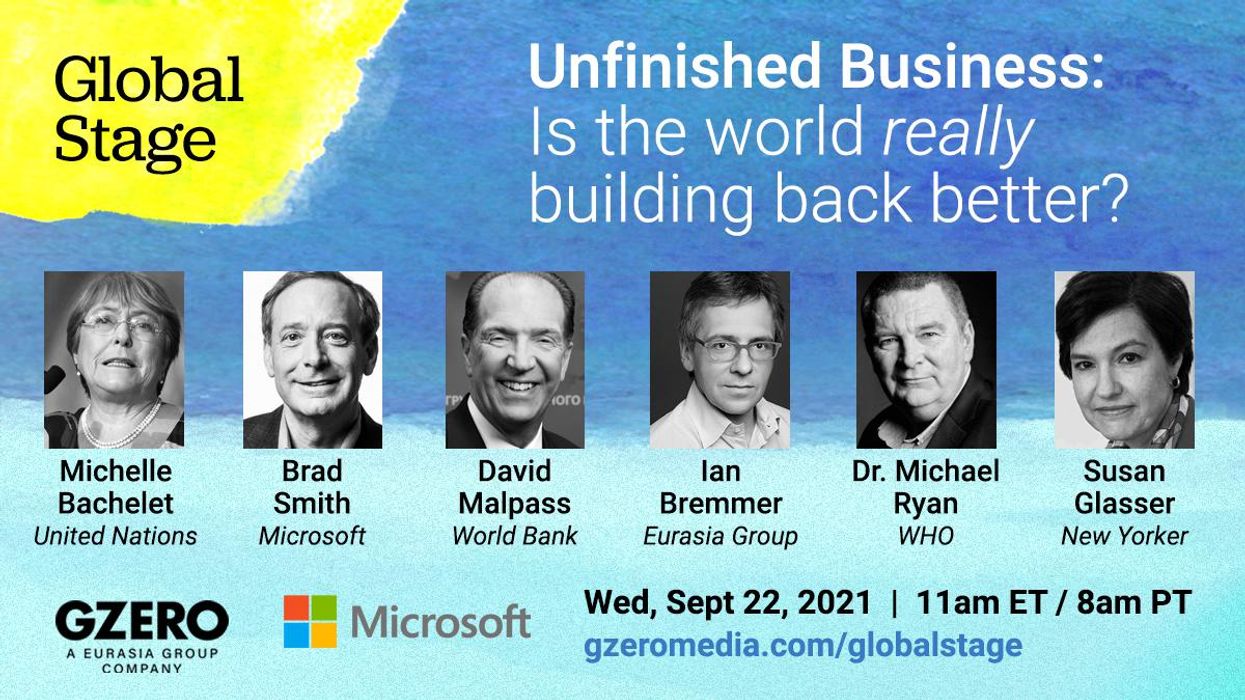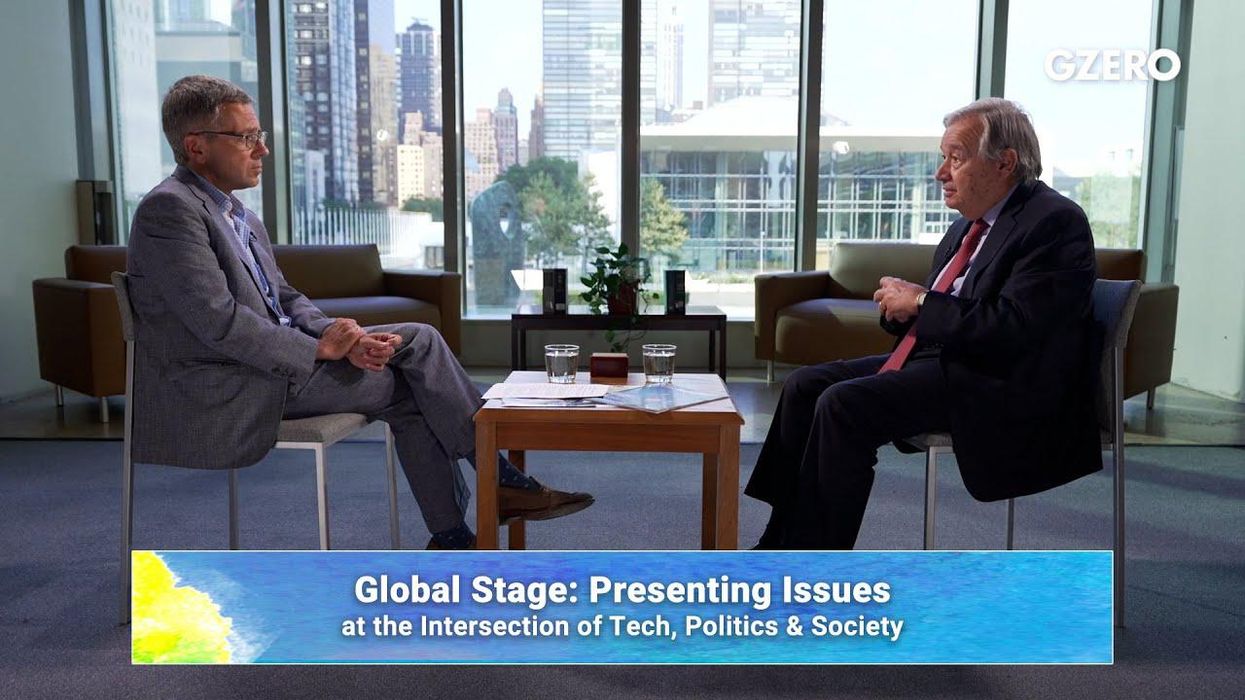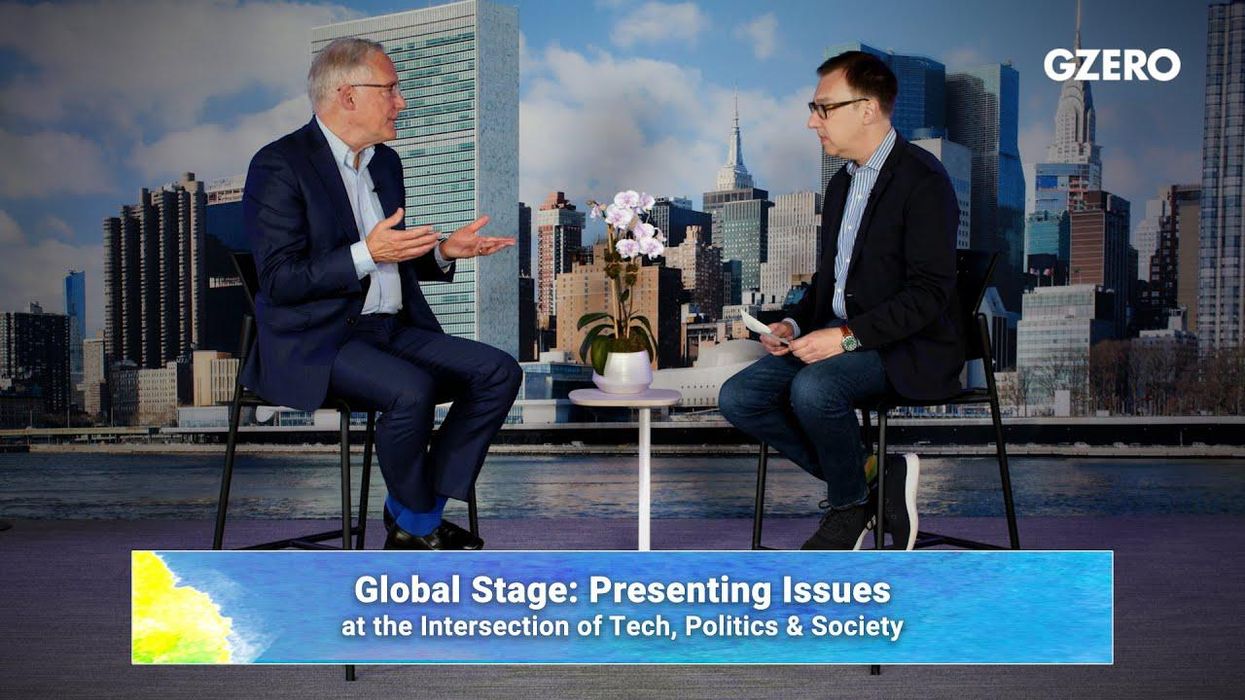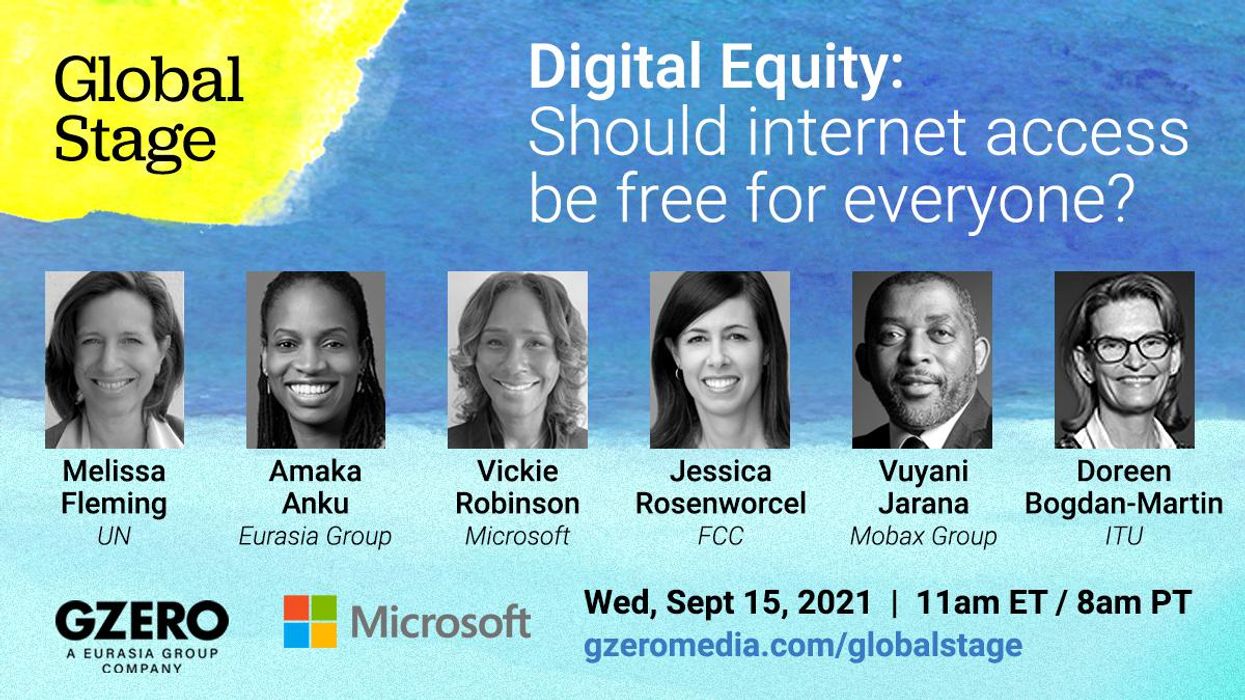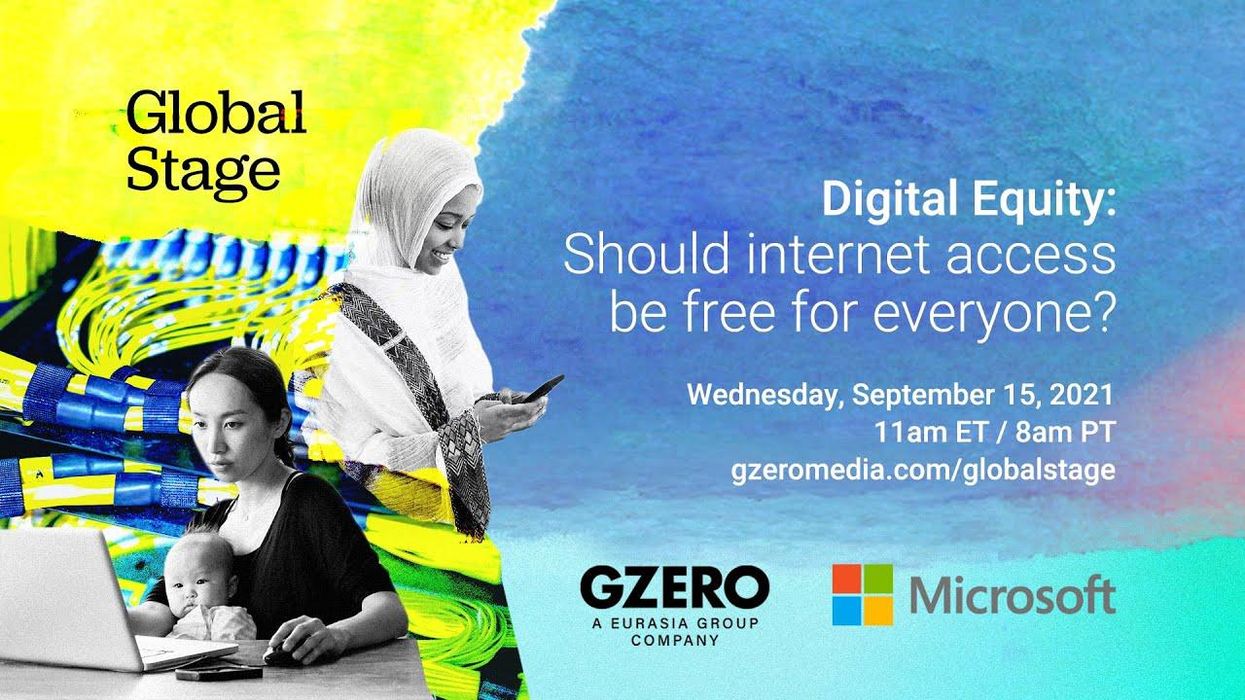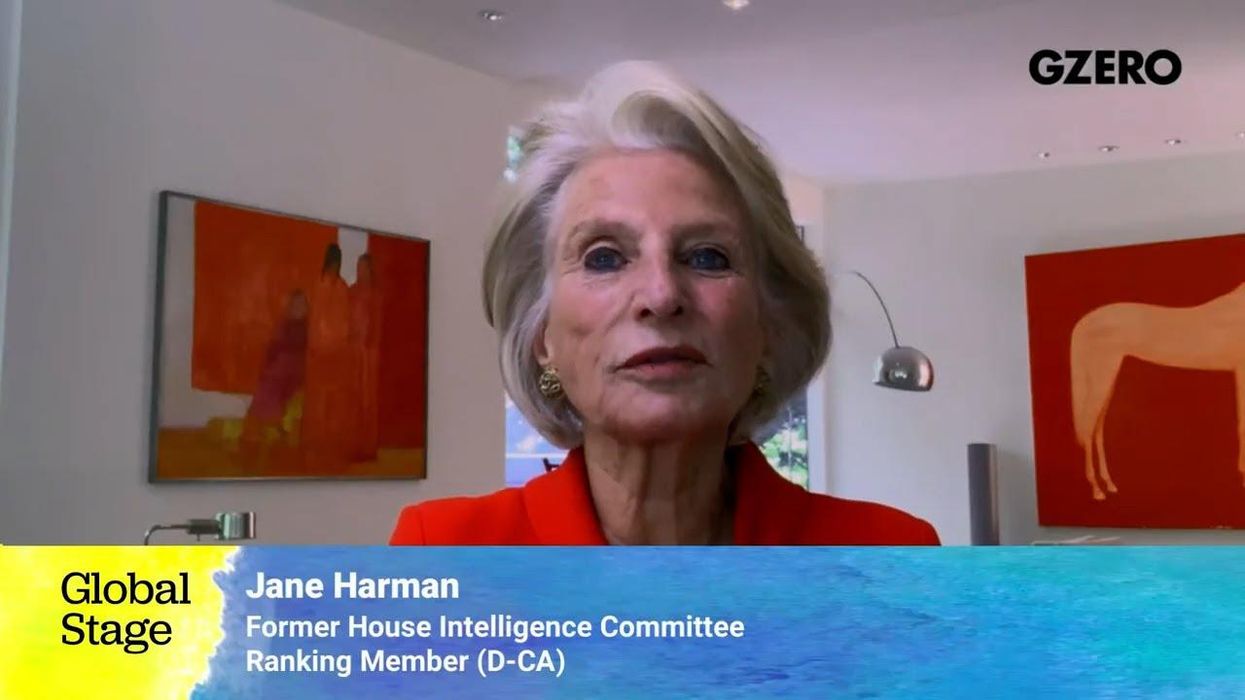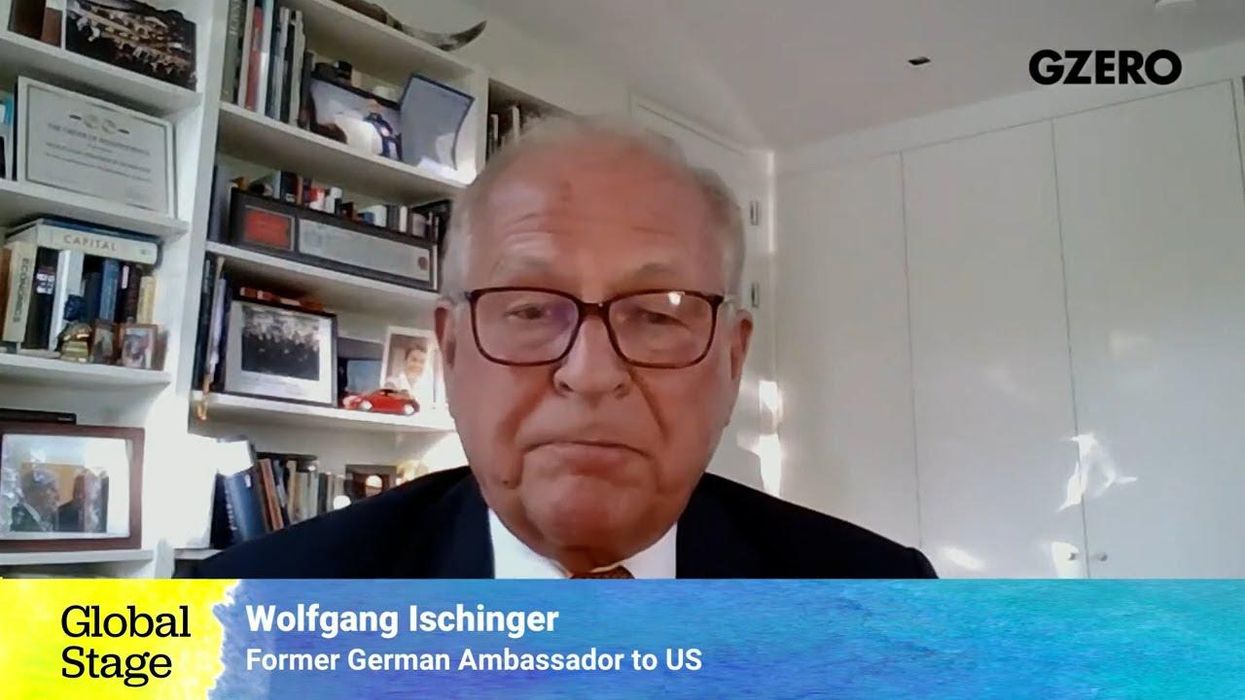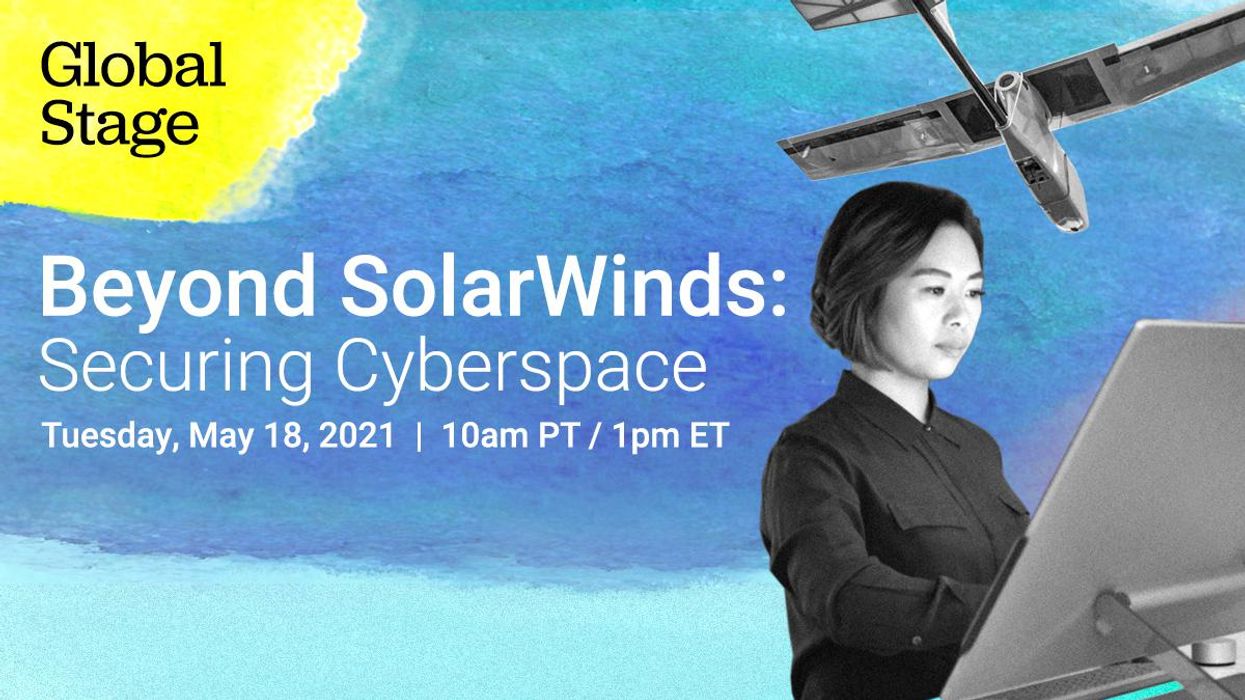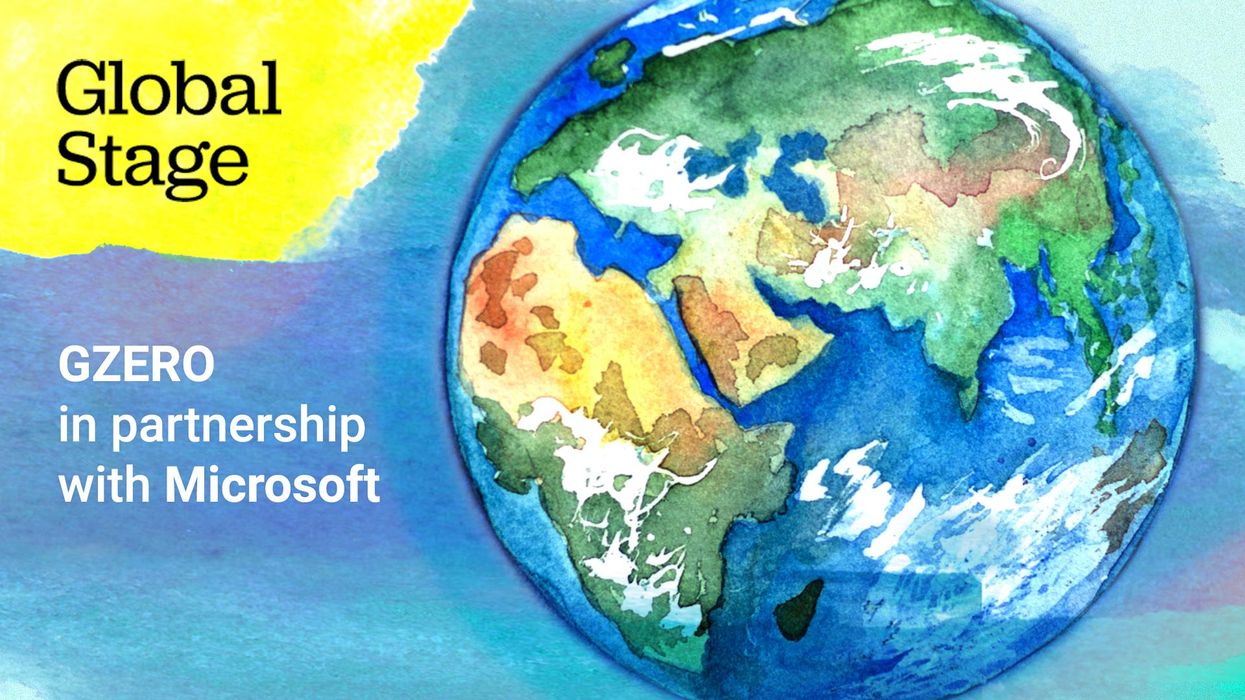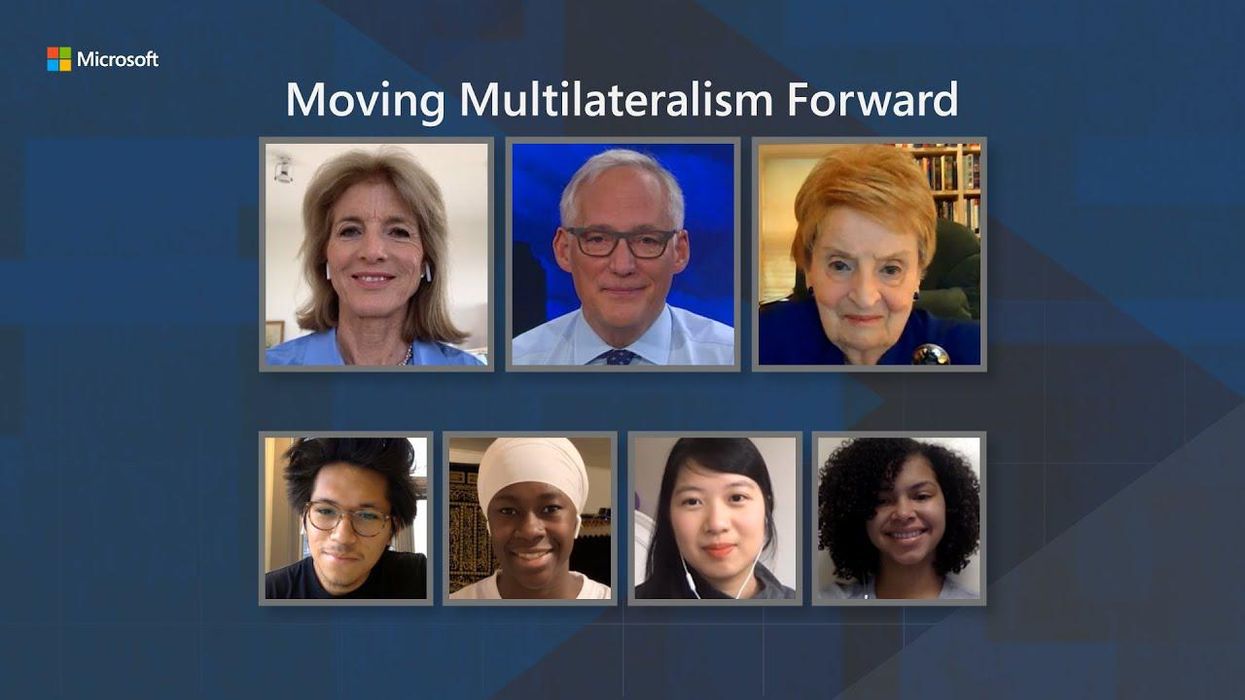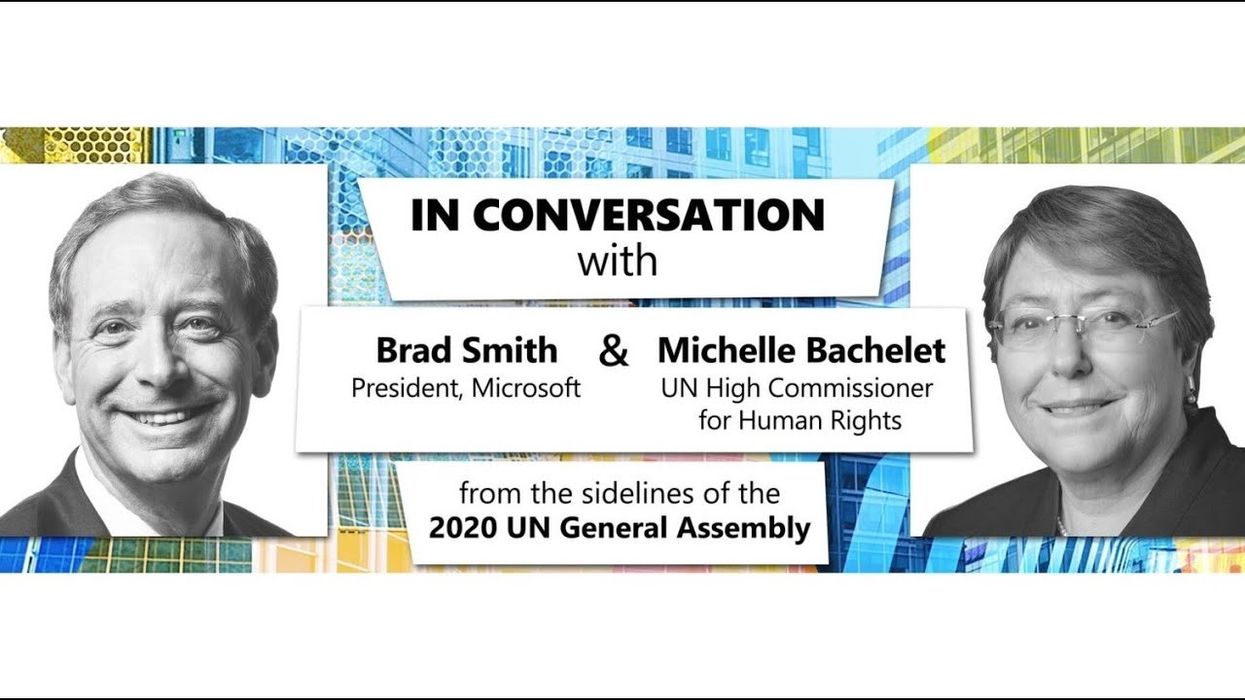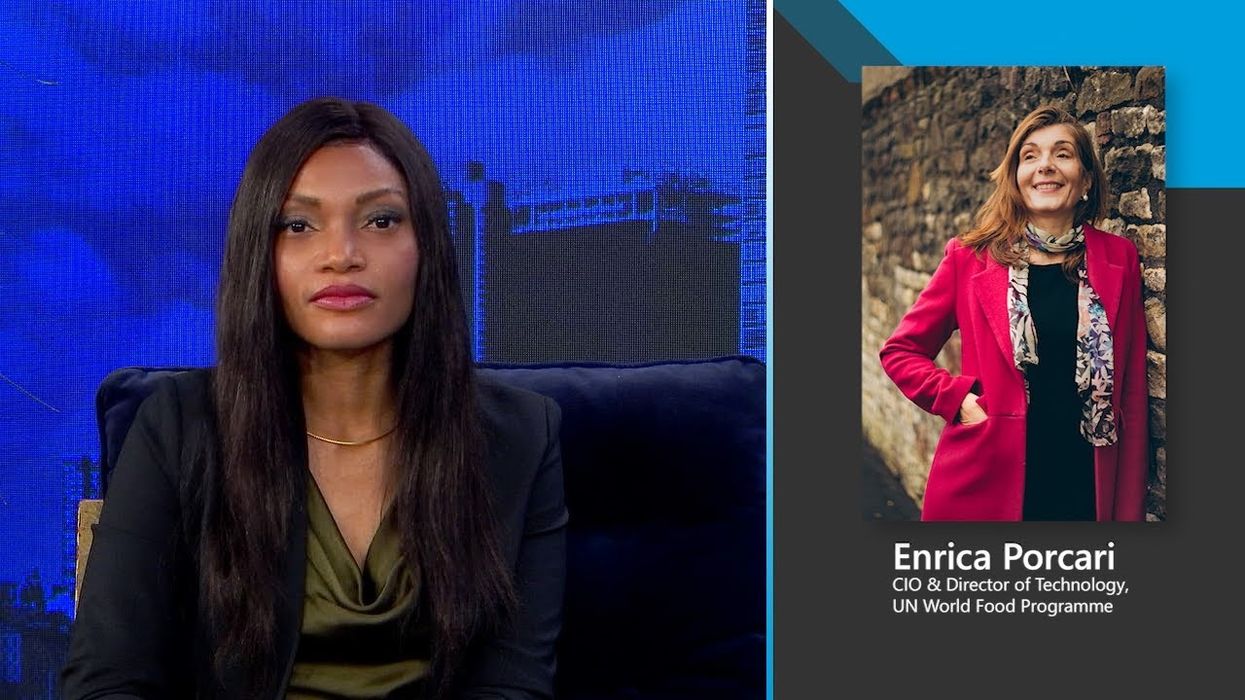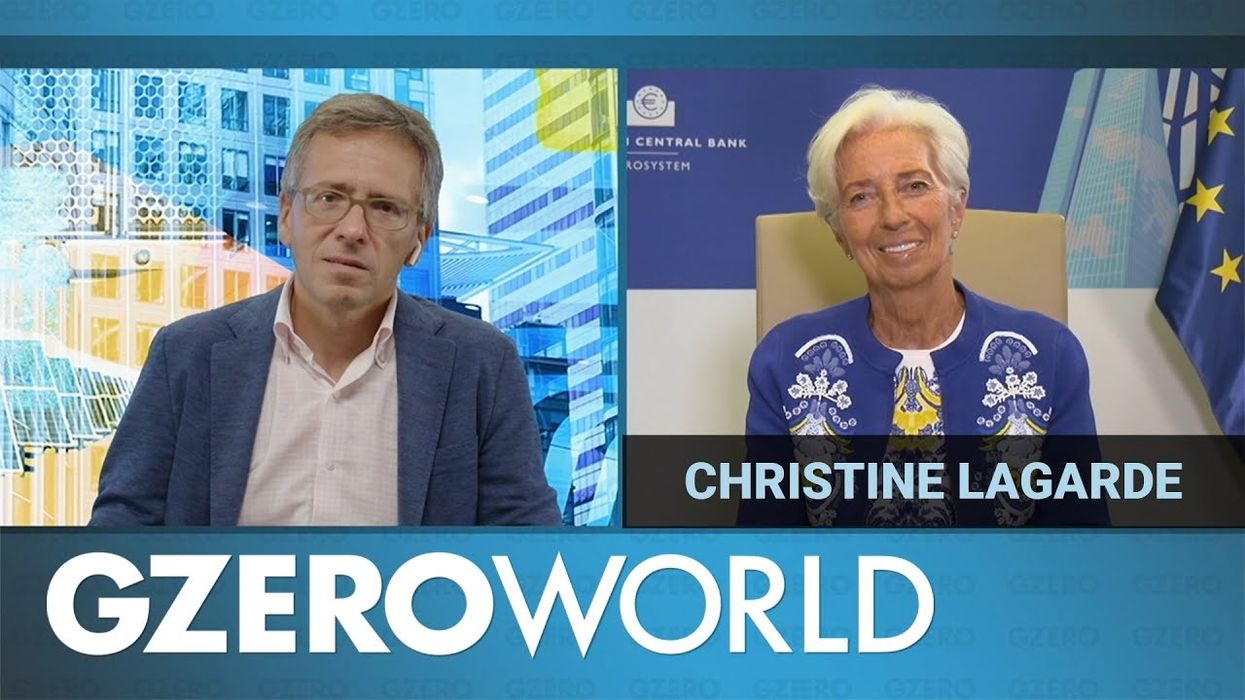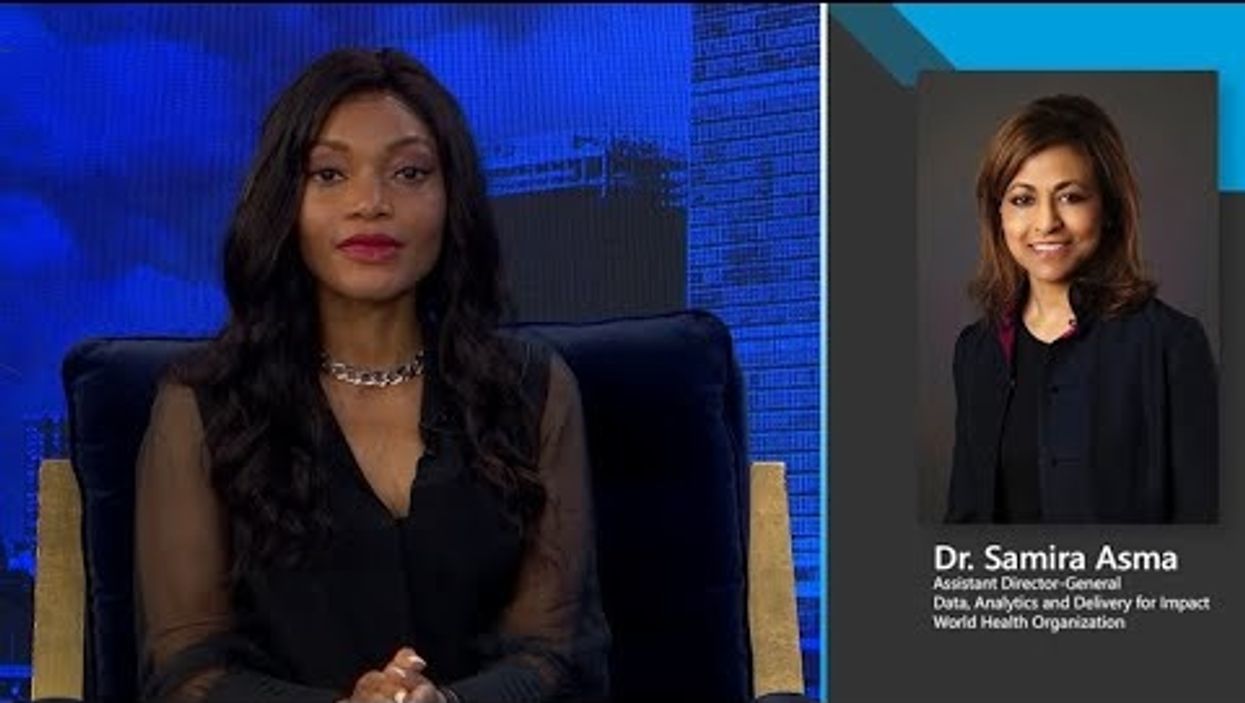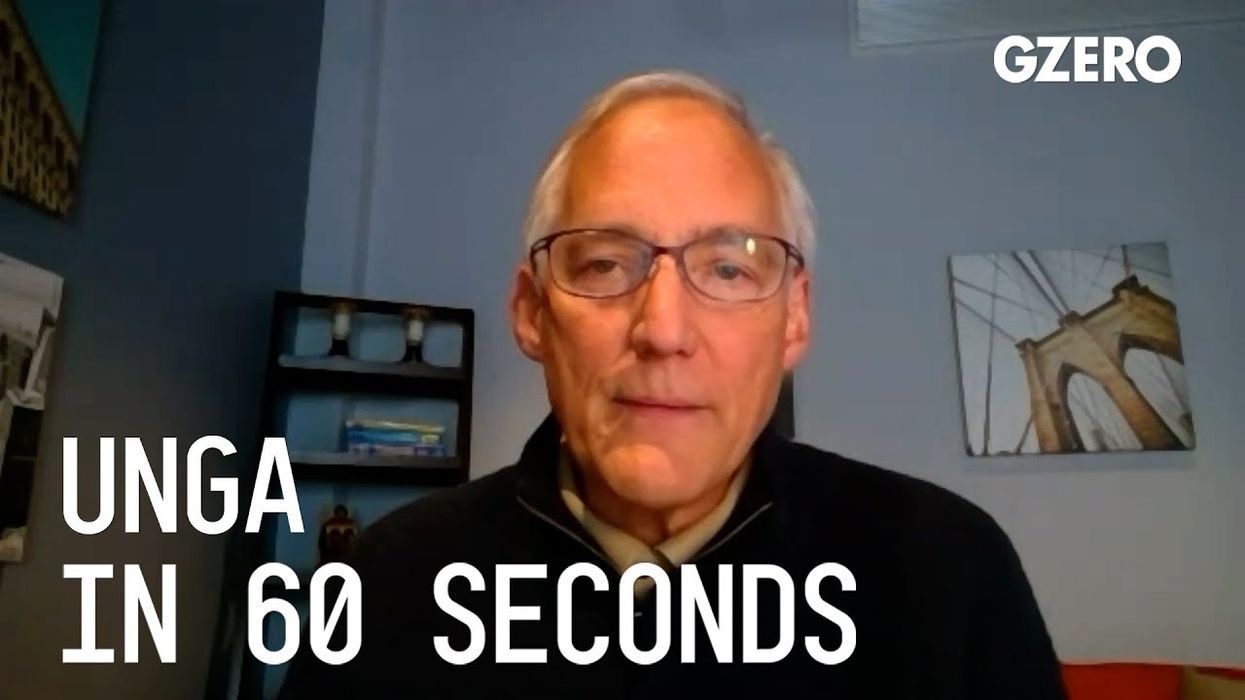VIDEOSGZERO World with Ian BremmerQuick TakePUPPET REGIMEIan ExplainsGZERO ReportsAsk IanGlobal Stage
Site Navigation
Search
Human content,
AI powered search.
Latest Stories
Sign up for GZERO Daily.
Get our latest updates and insights delivered to your inbox.
Global Stage: Live from Munich
WATCH RECORDING
Posts
Through livestream discussions, interviews, podcasts, and coverage of major global gatherings, Global Stage delves into the issues that are shaping our world and explains how they will affect people, industries, and economies everywhere.
Presented by
Brad Smith, President of Microsoft, joins Ian Bremmer on this week's World in 60 seconds to discuss multilateralism, optimism, and the return to normal in the post-pandemic world.
Could this pandemic actually present an opportunity to bolster global support for multilateralism and what should that look like moving forward, Brad?
Brad Smith:
Well, I think it's an imperative and it has to bolster support for multilateralism for a very simple reason. We cannot afford to assume that it will be another century before we see a pandemic like this again. We have to take from this experience, all of the learning we can muster and put in place what we will need to be better prepared. And the only way we can do that is to start with an obvious fact. Viruses don't respect borders. So people have to work together across them as governments and with the kinds of support from companies and civil society that it'll take to ensure that we don't find ourselves as ill prepared a decade from now or five years from now, as we were when this year began.
Ian Bremmer:
On the one hand, there's been a lot of lack of leadership, at least internationally, the G20 doing nearly as much coming out of this crisis that we saw coming out of the 2008 financial crisis when it was founded. On the other hand, you've got supra-nationalism in Europe with the Germans and the French, and indeed unanimous votes to actually create stronger redistribution, stronger capacity and resilience of that institution. You've got the World Health Organization, the UN here working with a bunch of leaders and the private sector.
What gives you cause so far for most optimism that we actually are going to respond more effectively?
Brad Smith:
Well, I think one of the fascinating aspects of this pandemic in its own way has been the critical importance of data. We're all relying on data, literally, to manage government decisions that determine whether we get to leave our homes, where we get to go, what we get to do. But the truth is what we've also learned is that the data that is needed to address something like this needs to be measured in a consistent way across borders. At Microsoft we're doing a lot of work with the World Health Organization. Just learning from that how each individual government can be more effective if it's collaborating with others in a more unified way, putting digital technology and data to work. I think there's a lot of insight from that narrow slice that in fact impacts every part of the economy in the world today.
Ian Bremmer:
One of the things that people have been most concerned about is that the pandemic is driving borders up. It's driving people farther apart. But the fact that technology is working as well as it is right now is also unlocking human capital in terms of distance learning, in terms of telemedicine for large numbers of people that otherwise would have been left further behind in a crisis like this.
Brad Smith:
We're all learning a lot. I think tele health services are one of the great examples of where we're going to find in the future that it doesn't mean that people will no longer go to a doctor, but they'll only go to a doctor when they need to see a doctor in person.
And we'll probably live in a world where people have more consultation with health professionals because tele-health will fill-in a void, but we're also finding all the cracks in our societies. What it means when some people have broadband and others don't. Some people have access to digital skills and others don't. So it's a world of new opportunity, but if the opportunity isn't distributed more broadly, then it's going to exacerbate all the divides we already worry about in our societies.
Ian Bremmer:
What's the piece of life after coronavirus when truly people feel safe, again, that we're not socially distancing and the rest, that you think is going to be most different from life before coronavirus?
Brad Smith:
Well, I think it's going to be a more of a mixture of hybrid life. I'm not one who believes that people will want to stay in their houses forever. I think there's a lot that can be accomplished when people get together that they can't do when they're by themselves. But there's also a lot that we can do that will add convenience and efficiency and effectiveness to our lives by combining this in-person interaction with remote sort of everything, shopping, ordering food, connecting with people around the world, we have the opportunity to build sort of a richer experience. But again, only if the technology that's essential for this is within everyone's reach.
Ian Bremmer:
I also think we could get used to being six feet apart from each other for a longer period of time.
Brad Smith:
Yeah. But I still think you'll go to a sporting event, people are still going to want to be in a crowd. Go to a theater, people are going to want to be in the crowd. It will be fascinating to see how long some of these other habits persist once we're finally out of the other end of this tunnel and can look at it in the rear view mirror.
Keep reading...Show less
More from Posts
Watch our Global Stage live premiere from Davos
January 21, 2026
Watch: Global Stage live from the 80th UN General Assembly
September 17, 2025
Live from the United Nations: Securing Our Digital Future
September 18, 2024
Live premiere today at 12 pm ET: Can we use AI to protect elections?
February 12, 2024
Watch our Davos event: Making AI Work for the World
January 11, 2024
Paris 2024 Olympics chief: “We are ready”
November 15, 2023
Live from the UN: Rescuing a world in crisis
September 14, 2022
Live from Davos: Crisis in a digital world
May 12, 2022
Want global equality? Get more people online
April 20, 2022
Join us for our Global Stage event live from Washington DC
April 12, 2022
Ukraine crisis one of many global threats at Munich Security Conference
February 24, 2022
Ukraine is a diversion from climate crisis, says John Kerry
February 20, 2022
Disinformation the “biggest threat” from Russia – Anne-Marie Slaughter
February 20, 2022
Want to land a "green job? 3 tips from LinkedIn's Sue Duke
November 05, 2021
Is net zero really possible? Watch our live event
October 25, 2021
UN Secretary-General Guterres has a warning for disunited nations
September 19, 2021
GDP should reflect cost of polluting planet, says Microsoft's John Frank
September 17, 2021
Watch our discussion to decide: should internet access be free?
September 15, 2021
Global Stage virtual events return this fall
August 30, 2021
Watch our live program: Securing Cyberspace
May 05, 2021
Introducing Global Stage
April 27, 2021
WHO's Dr. Samira Asma: Health data in the age of COVID | UN Innovation Room
September 30, 2020
In Conversation: Brad Smith & Trevor Noah from the 2020 UN General Assembly
September 23, 2020
Bridging the digital divide starts with broadband around the world
September 21, 2020
Join our livestream panel Wed 9/16: Net Zero: Climate Ambition and Action
September 12, 2020
GZERO Series
GZERO Daily: our free newsletter about global politics
Keep up with what’s going on around the world - and why it matters.
